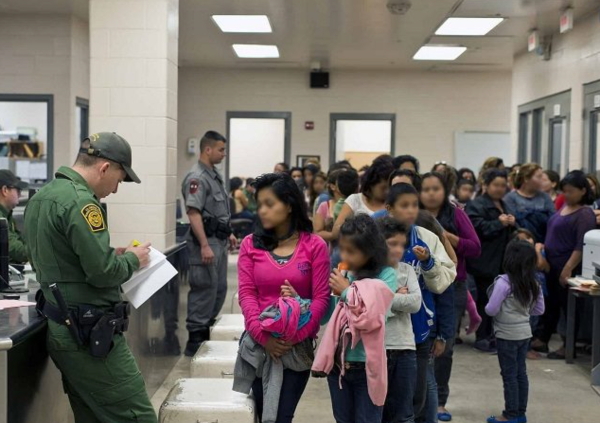German government to fly in thousands of Afghans post-election, despite integration failures and rising crime
02/21/2025 / By Lance D Johnson

Why it matters: The German government is set to fly in thousands of Afghan migrants after the upcoming election, raising concerns about integration failures, rising crime rates, and the strain on taxpayers. This decision comes amidst public outcry and accusations of the government prioritizing political expediency over national security and social stability.
Who is involved: The German government, led by Foreign Minister Annalena Baerbock of the Green Party, is facilitating the relocation of 3,500 Afghans. The move has been criticized by NGOs and the public, who accuse the government of caving to pressure and ignoring the potential risks associated with the influx of migrants with poor integration records.
When and where: The Afghans are scheduled to arrive in Berlin, Leipzig, and Hannover a week after the election, with the first charter flights expected to land in early October. The original plan was to fly them in before the election, but the government postponed the flights following terror attacks by Afghans in Aschaffenburg and Munich.
What happened: The German government announced plans to fly in 3,500 Afghans post-election, despite their poor integration record and the recent terror attacks. The decision has sparked outrage and concern among taxpayers and security experts, who question the government’s commitment to ensuring public safety and social cohesion.
Postponed relocation amid terror attacks
The initial plan was to fly in the Afghans before the election, but the government delayed the operation after a series of terror attacks by Afghan nationals. In Aschaffenburg, an Afghan man attacked a daycare group, while in Munich, another Afghan individual targeted a Verdi demonstration. These incidents heightened public anxiety and prompted the government to postpone the flights until after the election, ostensibly to avoid further inflaming tensions.
Annalena Baerbock, the Foreign Minister, cited logistical reasons for the delay, but NGOs accused the government of bowing to public pressure and right-wing criticism. The decision to proceed with the relocation after the election has done little to quell the growing discontent.
Integration failures and rising crime rates
The integration of Afghan migrants into German society has been fraught with challenges. According to official figures, more than a quarter of a million Afghans live in Germany, with the majority arriving during the 2015-2016 migration crisis. Despite efforts to integrate them, Afghans have one of the worst integration records among migrant groups.
• Crime Rates: Last year, the Afghan community was responsible for 21,773 crimes, including 94 murders and homicides. This translates to a crime rate of 7.8 percent for serious acts, compared to 0.002 percent for German citizens. The disparity is alarming and has fueled concerns about public safety.
• Unemployment: Only one in four Afghans in Germany has a job, according to the Federal Labor Office. This high unemployment rate exacerbates social tensions and places a burden on the welfare system.
Ahmad Mansour, an Israeli Arab psychologist living in Germany, highlights the complexity of integration: “For many scientists and politicians, language skills plus jobs minus crime equals integration. But is that enough? We need to consider cultural and social factors as well.”
Logistical challenges
The German government had promised Pakistan that the Afghans would only stay until March 31, but logistical issues have delayed their departure. Pakistan, facing its own challenges with Afghan refugees, has embarked on a nationwide deportation crackdown. However, the German government has struggled to meet its own deadlines due to the sheer number of flights required.
In an attempt to divert attention from the impending arrival of more Afghans, the government is organizing a deportation flight to Afghanistan before the election, a move seen as a “show of force” to appease critics. The last such flight took place in August 2024, just before state elections in Saxony, Thuringia, and Brandenburg, and involved only 24 Afghans.
Historical context and public outcry
The decision to fly in more Afghans is not without precedent. Over the past three and a half years, 36,000 Afghans have been flown into Germany, allegedly for their support of the Bundeswehr. However, the German embassy in Pakistan faced a scandal when it was revealed that Baerbock’s Foreign Office pressured them to issue visas to Afghans with forged papers. Prosecutors in Berlin and Cottbus are still investigating the matter.
The influx of Afghan migrants has been a contentious issue in Germany, with many questioning the government’s ability to manage the integration process. The recent terror attacks and the government’s handling of the situation have only served to amplify public discontent. Europe is in a state of rapid transformation and collapse.
Sources include:
Submit a correction >>
Tagged Under:
Afghan refugees, big government, border security, Collapse, crime rates, Dangerous, Europe, Germany, government-sponsored invasion, illegal invasion, insanity, integration, migrants, national security, Open Borders, outrage, public safety, stupid
This article may contain statements that reflect the opinion of the author
RECENT NEWS & ARTICLES
COPYRIGHT © 2017 TREASON NEWS




















